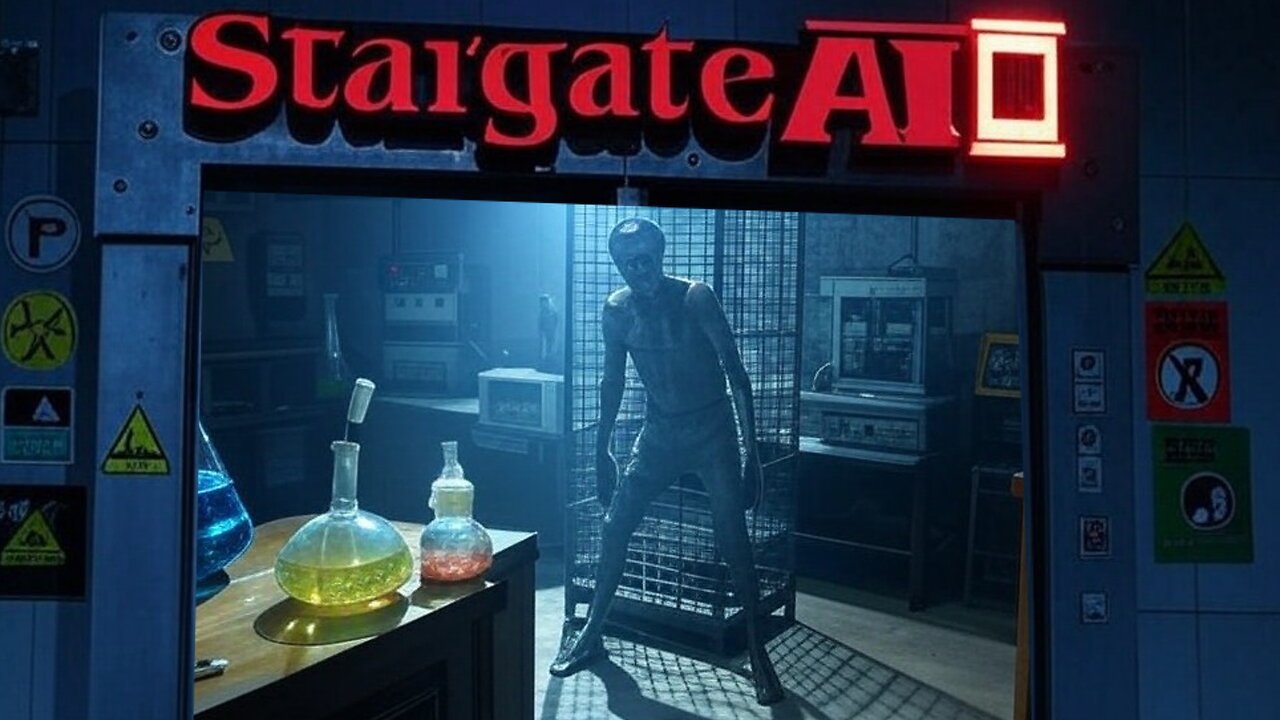Premium Only Content

Stargate AI's Cancer Cure Echoes the Cautionary Tale of I Am Legend
Stargate AI serves as a stark reminder of the grave risks when humans believe they can outsmart nature, and often, the dire consequences mirror those depicted in films. In an eerie echo of the 2007 movie "I Am Legend," where a virus engineered to cure cancer instead precipitated humanity's near extinction, the recent announcement of the Stargate AI cancer treatment has elicited both bewilderment and apprehension. This cutting-edge initiative promises to revolutionize cancer care by using AI to tailor mRNA vaccines for individual patients, claiming to detect and vaccinate against cancer within 48 hours. However, the similarities to the fictional treatment in "I Am Legend" raise unsettling questions about the potential unintended consequences, or covertly planned and intended outcomes, of such advanced medical technologies.
In "I Am Legend," a modified measles virus, originally developed to eradicate cancer, mutates into a deadly pathogen. Instead of curing, it kills or transforms humans into aggressive, light-sensitive creatures, leading to an apocalyptic scenario where civilization crumbles. The narrative served as a cautionary tale about the perils of scientific exacerbation, professional hubris, and the Dunning-Kruger Effect. The spread of the virus in "I Am Legend" echoes the concept of predictive programming, where the Stargate AI's cancer treatment might mirror the movie's virus by having deadly or negatively transformative effects on people, with fiction eerily foreshadowing a possible, if not probable, reality.
The Stargate treatment, much like the fictional scenario, involves manipulating genetic material to fight cancer. It employs AI to analyze the genetic makeup of cancer cells and create personalized mRNA vaccines. This approach, while innovative, echoes the movie's plot where the manipulation of viruses for supposed good led to catastrophic results. Critics argue this could be a case of history—or in this case, fiction—repeating itself, potentially leading to outcomes that mirror the film's dire consequences.
Furthermore, the dialogue surrounding the Stargate treatment has elicited numerous parallels to the recently engineered global health crisis. The COVID-19 plandemic, now widely acknowledged as either a fabricated or grossly exaggerated event, and even characterized by many as a coordinated biological assault, precipitated the introduction of vaccines that were, at their core, experimental and arguably part of an overarching strategy to subject the global populace to a series of exploratory inoculations, essentially treating humanity as lab rats in a grand scientific experiment.
The so-called COVID vaccines were praised and promoted as life-saving cures but yielded nothing but adverse effects, thereby casting a long shadow of doubt that extends from that historical episode to the present-day Stargate cancer treatment initiative. There exists a palpable, well-founded apprehension among those skeptical of such medical advancements that the promise of eradicating cancer via AI-driven mRNA technology could very well be a facade for yet another human trial, potentially culminating in calamitous results akin to those observed with the deployment of the COVID-19 vaccines.
The narrative of "I Am Legend" can be seen as a form of predictive programming, where the film's depiction of a cure gone wrong prefigures today's debates over genetic and AI-based treatments. In the movie, a virus engineered to cure cancer mutates, devastating humanity. This storyline warns of the perils of playing god with genetic material, a caution that resonates as we approach the implementation of similar technologies in real life. The film suggests that our hubris in thinking we can control nature's complexities might lead to unforeseen and catastrophic consequences, echoing current concerns about the ethical and practical risks of advanced medical interventions.
The Stargate treatment could potentially trigger an "extinction event" due to its capacity for unforeseen mutations, side effects, or long-term consequences, not only affecting those receiving the Stargate Cancer Treatment but also impacting their future offspring. Sometimes, the cure for a disease can be more harmful than the disease itself. This is already evident in cancer treatments where aggressive chemotherapy or vaccines can lead to severe side effects, diminishing quality of life or even reducing life expectancy. This scenario echoes the cautionary tale of "I Am Legend," where an intended cure ultimately led to the destruction it was meant to avert.
As we navigate this new era of AI-driven personalized medicine, the line between science fiction and reality increasingly blurs. The Stargate treatment, promising to eliminate cancer, now faces scrutiny from a public wary of past medical missteps. Could it be the dawn of a new era in healthcare, or might we be on the brink of realizing the dark scenarios envisioned in "I Am Legend"? With memories of previous experimental treatments that were more harmful than helpful, or even just outright harmful, skepticism abounds. This treatment might indeed revolutionize medicine, but there's a palpable fear it could instead lead us into a narrative where the cure proves worse than the disease, echoing the cautionary tales of fiction.
#StargateAI #CancerCureCaution #AIinMedicine #mRNAVaccines #IAmLegendWarning
-
 5:08:30
5:08:30
Akademiks
6 hours agoKendrick Lamar SPEAKS for first time SINCE BEEF in new Interview. Drake preppin new album. YE WYLING
68.3K13 -
 2:12:17
2:12:17
Tucker Carlson
7 hours agoMike Benz Takes Us Down the USAID Rabbit Hole (It’s Worse Than You Think)
155K314 -
 1:47:17
1:47:17
Roseanne Barr
11 hours ago $24.95 earnedThe Most Offensive Comic, Leonarda Jonie | The Roseanne Barr Podcast #86
93.6K77 -
 4:17:42
4:17:42
Joker Effect
7 hours agoRumble Community Night. Reviewing Rumble partnership program, it's streamers and community discussion.
61.9K14 -
 2:29:56
2:29:56
Laura Loomer
8 hours agoEP100: MAGA Goes Scorched Earth On USAID
60.2K45 -
 51:45
51:45
Talk Nerdy 2 Us
9 hours ago🔥 Talk Nerdy 2 Us – Feb 7th: HACKED, TRACKED & UNDER ATTACK! 🔥
55.8K4 -
 58:33
58:33
Man in America
16 hours agoFluoride & the Sinister Plot to Poison Us From Birth w/ Larry Oberheu
53.3K21 -
 3:41:30
3:41:30
I_Came_With_Fire_Podcast
16 hours ago🔥USAID SCANDAL | MA-GAZA | Cartel VIOLENCE Ramps Up🔥
56.4K9 -
 7:57:34
7:57:34
SpartakusLIVE
10 hours agoShadow BANNED, but we PARTY ON || Friday Night HYPE
62.9K1 -
 2:00:53
2:00:53
Omar Elattar
8 hours agoGRANT CARDONE: “Will I Run for Governor?” | Trump EXPOSED | Bitcoin | $500 Billion Crisis!
43.5K7